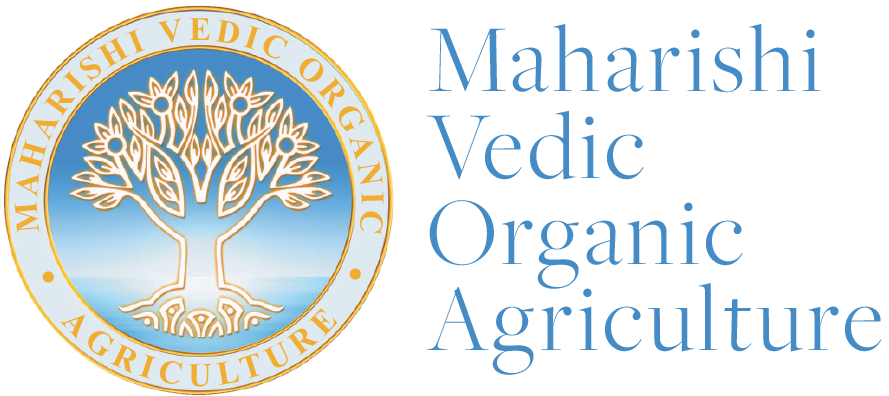The Life of the Vedic Farmer
What does it mean to practice Maharishi Vedic Organic Agriculture and Environmental Management? What does it mean to be a Vedic farmer?
Maharishi Vedic Organic Agriculture and Environmental Management presents a new vision for agriculture and the environment. It envisions the future of agriculture as taking recourse to the foundation of agriculture itself, Total Natural Law, to handle the infinitely complex number of factors required for successful agriculture, and it handles these factors easily and naturally from within the awareness of the farmer himself.
To be a Vedic farmer means to use the Maharishi Technologies of Consciousness, the Transcendental Meditation and TM-Sidhi programme, to create coherence in individual, societal, and environmental Consciousness.
To be a Vedic farmer means to use the eight fundamental structuring dynamics of Natural Law inherent in the Maharishi Vedic Agriculture Yagya programme to fertilize the growth and development of plants at each stage in their life cycle.
To be a Vedic farmer means to use the Laws of Nature themselves as tools to nourish, balance, and support crops, and their interaction with the soil, the sun, rains, and the seasons.
To be a Vedic farmer means to be a modern scientist, one who uses the most advanced scientific knowledge as a foundation for understanding Natural Law, and for being able to use Natural Law for the benefit of his farm. The Vedic farmer merges the objective approach of gaining knowledge with the subjective approach, to achieve practices that are fully life supporting to all of life and sustainable for the environment as a whole.
To be a Vedic farmer means to understand and experience that the natural environment is ultimately one symphony, made up of individual instruments that are so interconnected that their sounds are not meaningful or significant, independent of the complete symphony. This allows the Vedic farmer to experience why biodiversity, or the intricate interactions of all the components in the environment, is so essential, because the greater the diversity, the greater unity and mutual enrichment that comes from it.
To be a Vedic farmer means to be the centrepiece of Nature, and by making deep connections with it, to draw its intelligence and resources into the farmer’s own intelligence, into his own patterns of thinking, living, and farming. By doing so, he brings out new knowledge from the unfathomable mind of Nature—knowledge that may have been forgotten for centuries, knowledge that is essential for man’s true well-being, prosperity, and happiness.
To be a Vedic farmer means that the farmer’s intentions and the intentions of Nature are the same. The Vedic farmer becomes part of Nature’s creative process, and enjoys the exhilaration, joy, and intense connection to truth, that this evokes.
To be a Vedic farmer means to deeply understand the relationship between the quality of food the farmer creates and its effect on the mind and health of his family and society. A Vedic farmer does everything in their power to create Vedic food—food that is pure, fully ripened, fresh, and grown in accord with all the Laws of Nature.
But to be a Vedic farmer, we have to change, and that change has to come from within ourselves. Actually, it comes naturally and effortlessly from the practice of the Transcendental Meditation® and TM-Sidhi programme. And when these practices open our awareness to new possibilities, there has to be a willingness, an openness to perceive and to interact with Nature in a new way. We have to learn to agree with the intelligence of Nature. We have to transcend our limited intellectual, emotional, and perceptual frameworks. We have to change these frameworks from separation to intimacy. We have to stop only dissecting and diagnosing, and start appreciating and living with Nature. We have to stop manipulating, and start cooperating. We have to adopt Nature’s holistic intelligence, and surrender our limited, fragmented intelligence. We have to create coherence rather than disharmony.
For the Vedic farmer, Vedic Agriculture is both holistic and specific. It is specific to the needs of the farmer and his profession, and it is holistic in its benefit to the natural environment, to society, the nation, and the world as a whole. The Vedic farmer has a real vision of what life can be like, a real vision of wholeness, of fullness. For the Vedic farmer, agriculture is the supreme profession, the supreme contribution that any one could make to themselves and their society.
There is no system of agriculture more practical than Vedic Agriculture; there is no system that makes the profession of agriculture more successful with less effort—more successful in terms of the quality of food that is produced, more successful in terms of the fulfilment that the farmers, as individuals, gain from their profession, and more successful from the perspective of society, from the health and support of Nature that results. Vedic Agriculture is a supremely protective and nourishing science of agriculture for the entire nation through its ability to create food self-sufficiency and ideal living conditions.
